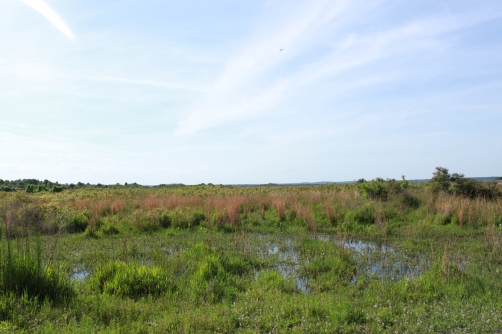Andi Crowell
Freshman, Biochemistry Major
Geography, a major in the College of Liberal Arts and Sciences, is generally not a major students select right when they enter college. Rather, according to Dr. Joann Mossa, undergraduate coordinator for the UF geography department, it is a “discovered major.” To fulfill general education requirements, many students end up enrolled in a geography course and often, this geography course sparks the student’s interest in geography and leads them to pursue this major.
“We have a saying: nobody chooses geography; geography chooses you,” says Kyle Gorman, a geography major.
Gorman planned to major in linguistics until he “stumbled upon an urban planning class,” leading him to his future major. Similarly, geography major Marcio Ngombe was interested in languages and intended to study Portuguese. However, after being selected for the International Baccalaureate program at the United World Colleges Red Cross Nordic, he had to change plans because the program did not offer Portuguese.
“I decided to focus on social sciences, and one of the classes they offered was geography/sustainable development,” explains Ngombe. “That completely opened my eyes to the beauty of geography as a social science.”
A relatively small number of students major in geography; enrollment varies between the fifties and low hundreds. The small size helps to foster a sense of community within the department.
“One of the things I love about my job is our majors are really fun people to talk to. They sometimes call me their ‘geography mom.’” says Dr. Mossa, sitting in her office, a room that reflects her passion for geography. Rows of shelves house geography textbooks and models of fish hang from the ceiling. Photographs of geographic phenomena are scattered on the walls. “Our majors tend to have fun. They tend to like each other.”
Additionally, the variety of options within the major also offers students a multitude of opportunities. Many students minor in fields relating to geography, such as geology, sustainability, anthropology, and urban and regional planning, but others take a different perspective on the traditional discipline of geography by studying fields as diverse as medical geography. Still other students expand their pursuits outside the realm of geography. Gorman, for example, is minoring in Chinese language and studied abroad in China in the summer of 2014.
“I think a lot of what students like is the diversity,” says Dr. Mossa. “You get a lot of breadth in terms of the things you can do.” Geography majors at UF choose from a great variety of internships and research projects. Some students have worked with the St. John’s River Water Management District and one student works with the United States Geological Survey. Another student did a remote sensing study of tundra fires. Ngombe returned to his home country, Angola, to do an internship involving extensive research to measure several factors affecting the quality of life. For instance, he gathered information about flooding in residential areas and “geo-located” buildings to help capture population estimates.
“I got to see the usefulness of what I am studying with an organization called Development Workshop. And that itself is something priceless. I am doing something that I can export to my own socio-cultural context,” says Ngombe.
Geography majors also participate in extracurricular geography-related pursuits. Some students belong to the geography club, the geography honor society, and UF’s chapter of the American Meteorology Society.
Following graduation, about 25 percent of geography majors go on to graduate school. Some earn a master’s degree in public health, while others work for environmental firms and work with geographic information systems (GIS). Nearly endless options present themselves.
“I want to share the magic of geography with others by teaching. I want to use what I learned to make a difference in people’s lives, like in my home country,” says Ngombe. “There is much research that can be done in the world, with geography as a basis.”
Geography majors engage in these activities because of the education they receive. According to Gorman, geography gives students “a tangible skill set.” With these skills, they can explore a variety of potential career possibilities—though they likely differ significantly from their original plan.






Leave a comment